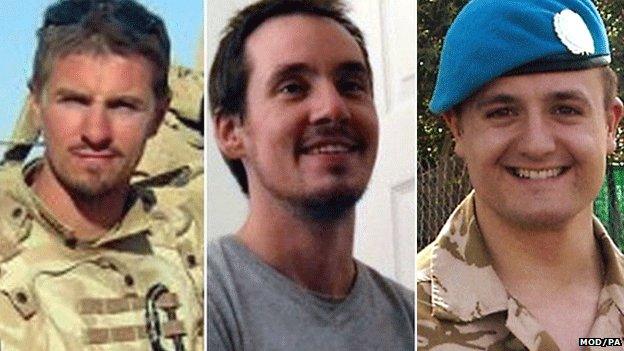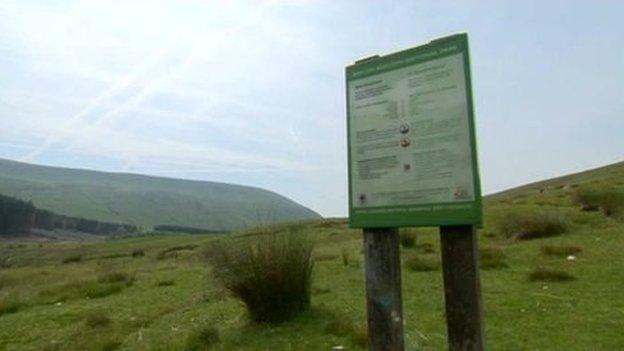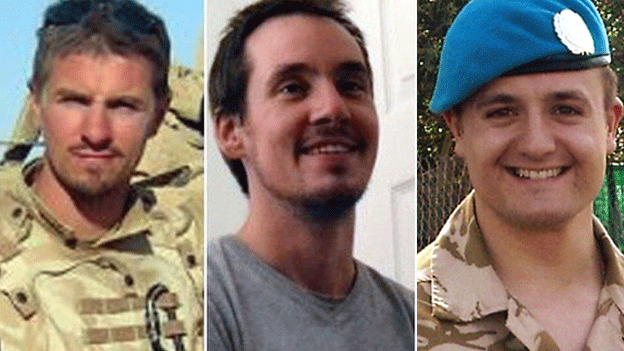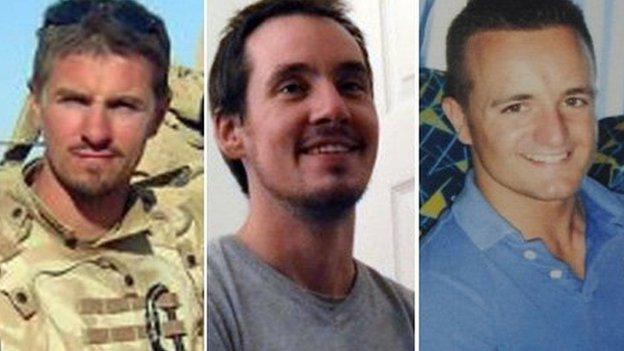SAS selection deaths: No medic at checkpoint for 'over an hour'
- Published

Cpl James Dunsby, L/Cpl Edward Maher and L/Cpl Craig Roberts took part in the exercise last year
A fatal SAS selection exercise had no medics or instructors for "over an hour" at one of the checkpoints, an inquest heard.
L/Cpl Craig Roberts, 24, died during the Brecon Beacons march on one of the hottest days of the year in July 2013.
L/Cpl Edward Maher and Cpl James Dunsby died in hospital after collapsing while attempting the same march.
Giving evidence anonymously, soldier 1S, a medic, said he and colleagues had left to attend to other casualties.
1S also said that in his opinion, some soldiers were coping better in the 27C (80.6F) heat than others that day.
"It looked like it was the reservists [who] were struggling…the regular soldiers weren't," he told the hearing in Solihull, West Midlands.
"It was like the reservists hadn't completed the appropriate number of beat marches."
He also said he believed all tracking devices were working that day.
They monitor the progress of candidates and provide an emergency "man down" button for candidates if they feel they can no longer continue.

The exercise was carried out on the Brecon Beacons on one of the hottest days of 2013
One candidate previously told the inquest his device was not initially working, but instructors had told him it would probably "drop back in" to the computer system as he went round the course.
One instructor on duty during the selection exercise, soldier 1A, told the inquest there was "no reason" to discuss the weather.
The commander said he took his lead from the regular army unit, which he claimed was in overall charge at the time.
Senior coroner Louise Hunt asked 1A if he specifically discussed the weather with the regular army unit.
He said: "There was no reason to discuss the weather as far as I was concerned."
Later, the coroner asked him about a risk assessment for the exercise, when it was completed and whether he reviewed the part about heat illness.
'Ultimate responsibility'
1A said: "No… I was content that the risk assessment addressed control measures….we'd been training in similar conditions."
The soldier said he had not received training on writing risk assessments at the time of the deaths, but has now.
A document entitled 'military training exercises' was read out, highlighting the need to "integrate risk management" into military exercises.
It stated that individuals should have a "personal responsibility" to assess risk and ensure personnel are kept safe "as far as reasonably practical".
The coroner asked if he was responsible on the day of the exercise.
He said it was soldier EE who had "ultimate responsibility", and officer SR44.
1A said there was "no need" for soldiers to run out of water on the day of the exercise because there were checkpoints and natural water sources available.
The inquest continues.
- Published10 June 2015

- Published10 June 2015

- Published5 June 2015

- Published8 June 2015

- Published9 June 2015
